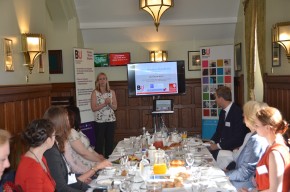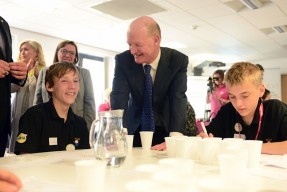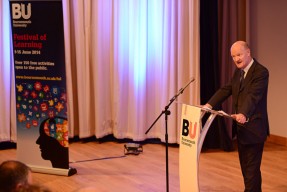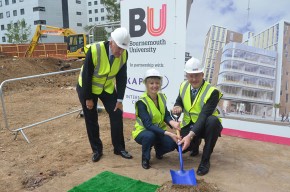Following work with Dr Sarah Bate from BU’s Centre for Face Processing Disorders, NHS Choices have formally recognised prosopagnosia (face blindness) as a condition.
The ‘Introduction to Prosopagnosia’ can be viewed on the NHS Choices website here.
Dr Bate said: “I’m delighted by this news and so pleased to have been a part of the process. This small action will really help to increase understanding among the general public and ensure that people with prosopagnosia receive the recognition and support they need.”
Since 2004 Dr Bate and her colleagues have been researching this little-known condition, which is characterised by the inability to recognise faces. Until the last decade it was thought the disorder was very rare, acquired following a brain injury. We now know 2% of the population are born with a developmental form of the condition. This includes 300,000 children in the UK alone.
Prosopagnosia can vary depending on severity. Some sufferers struggle to put a name to a face whereas others simply cannot recognise people they have known their whole lives. It can be as severe as not being able to recognise your own child at the school gate or even to pick out your own face from a line-up of photos.
It is the effects that are most problematic though. In extreme cases people can withdraw socially, become depressed, leave their job, or suffer endless embarrassment.
The action by NHS Choices comes after Dr Bate’s extensive outreach programme instigated the tabling of an Early Day Motion to raise awareness of face blindness in the House of Commons.
Local MPs asked questions in Parliament on her behalf and in July 2013 Minister of State for Care and Support, Norman Lamb MP made the commitment.
“NHS Choices will be including information about prosopagnosia in the A to Z of medical conditions on its website,” he said. “This will help to promote better understanding among the wider general public and ensure that people with prosopagnosia receive the recognition and support they need”.
The NHS Choices page on prosopagnosia is informed by Dr Bate’s work and links to BU’s Centre for Face Processing Disorders. It is hoped this will help people to recognise prosopagnosia and direct them to the best possible support available for them.
“Now prosopagnosia is formally recognised by the NHS we’ll be in a much better position to tackle our next goals,” explained Dr Bate.
“Prosopagnosia is a very challenging condition. People experience social isolation, often leading to depression and other difficulties. It affects their education, working life and relationships.
“Ideally we think prosopagnosia should be covered in GP training, teacher training and in school special needs provision. Only then will people really get the recognition and support they so desperately need.”
Just last week Dr Bate hosted a roundtable in the Commons calling for greater public awareness of the condition. Read more about this event and the outcomes here.
 Bournemouth University
Bournemouth University


